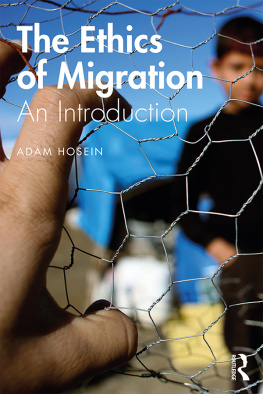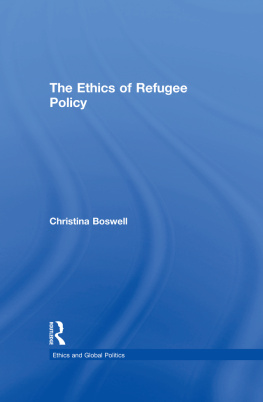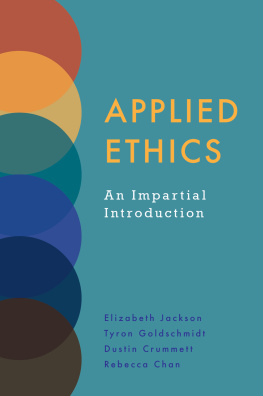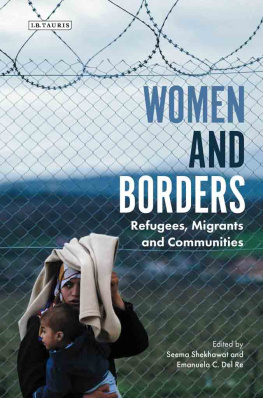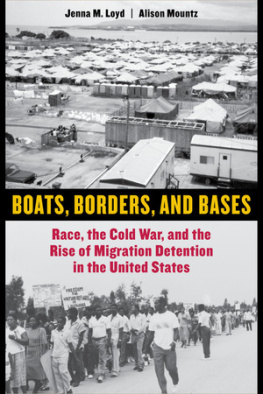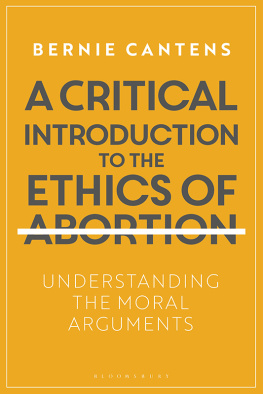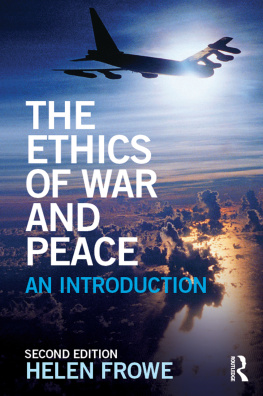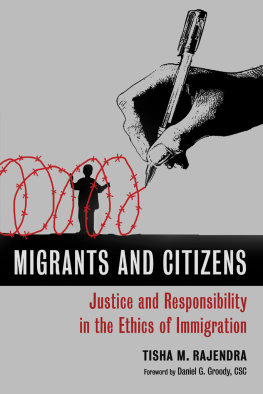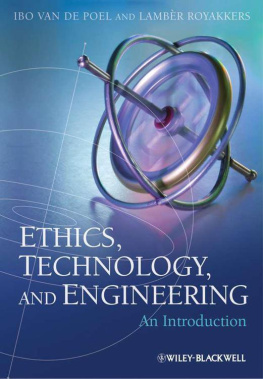The Ethics of Migration
In The Ethics of Migration: An Introduction, Adam Hosein systematically and comprehensively examines the ethical issues surrounding the concept of immigration. The book addresses important questions, such as:
- Can states claim a right to control their borders and, if so, to what extent?
- Is detention ever a justifiable means of border enforcement?
- Which criteria may states use to determine who should be admitted into their territory and how do these criteria interact with existing hierarchies of race and gender?
- Who should be considered a refugee?
- Which rights are migrants who are present in a territory entitled to?
- Is there an acceptable way to design a temporary worker program?
- When, if ever, are amnesties for unauthorized migrants appropriate?
Featuring case studies throughout, this textbook provides a philosophical introduction to an incredibly topical issue studied by students within the fields of political philosophy, applied ethics, global studies, politics, law, sociology, and public policy.
Adam Hosein is Associate Professor of Philosophy at Northeastern University, USA.
The Ethics of ...
When is it right to go to war? What are the causes of poverty? Are human intelligence and machine intelligence the same? What is cyber-terrorism? Do races exist? What makes a person a refugee?
Each engaging textbook from The Ethics of series focuses on a significant ethical issue and provides a clear and stimulating explanation of the surrounding philosophical discussions. Focusing on moral debates at the forefront of contemporary society they have been designed for use by students studying philosophy, applied ethics, global ethics and related subjects such as politics, international relations and sociology. Features to aid study include chapter summaries, study questions, annotated further reading and glossaries.
The Ethics of War and Peace
An Introduction
Second Edition
Helen Frowe
The Ethics of Global Poverty
An Introduction
Scott Wisor
The Ethics of Surveillance
An Introduction
Kevin Macnish
The Ethics of Climate Change
An Introduction
Byron Williston
The Ethics of Development
An Introduction
David Ingram and Thomas Derdak
The Ethics of Migration
An Introduction
Adam Hosein
First published 2019
by Routledge
2 Park Square, Milton Park, Abingdon, Oxon OX14 4RN
and by Routledge
52 Vanderbilt Avenue, New York, NY 10017
Routledge is an imprint of the Taylor & Francis Group, an informa business
2019 Adam Hosein
The right of Adam Hosein to be identified as author of this work has been asserted by him in accordance with sections 77 and 78 of the Copyright, Designs and Patents Act 1988.
All rights reserved. No part of this book may be reprinted or reproduced or utilised in any form or by any electronic, mechanical, or other means, now known or hereafter invented, including photocopying and recording, or in any information storage or retrieval system, without permission in writing from the publishers.
Trademark notice: Product or corporate names may be trademarks or registered trademarks, and are used only for identification and explanation without intent to infringe.
British Library Cataloguing-in-Publication Data
A catalogue record for this book is available from the British Library
Library of Congress Cataloging-in-Publication Data
Names: Hosein, Adam (Adam Omar), author.
Title: The ethics of migration : an introduction / Adam Hosein.
Description: Abingdon, Oxon ; New York, NY : Routledge, 2019. | Series: The ethics of... | Includes bibliographical references and index.
Identifiers: LCCN 2018060402| ISBN 9781138659513 (hardback : alk. paper) | ISBN 9781138659520 (pbk. : alk. paper) | ISBN 9780429029455 (ebk.)
Subjects: LCSH: Emigration and immigration--Moral and ethical aspects. | Emigration and immigration--Social aspects. | Emigration and immigration--Government policy.
Classification: LCC JV6035 .H67 2019 | DDC 172/.1--dc23
LC record available at https://lccn.loc.gov/2018060402
ISBN: 978-1-138-65951-3 (hbk)
ISBN: 978-1-138-65952-0 (pbk)
ISBN: 978-0-429-02945-5 (ebk)
To my immigrant family Dorothy, Ian, Sarah, and Rory Hosein with love.
I have been extremely fortunate to receive a lot of help over the years in this field and with this manuscript specifically. Michael Blake first convinced me that I might have something useful to contribute to immigration studies and gave me a lot support, intellectually and otherwise. I also owe a special thanks to Adam Cox, because a significant part of the book is drawn from work that we did together, and in many other places from conversations I was lucky to have with him. The project benefitted enormously from the expertise of Jos Jorge Mendoza. Shelley Wilcox shared her wisdom at multiple points in the process. I received very useful comments on parts of the manuscript from Serena Parekh and Caleb Yong. I am very grateful to Joseph Carens for generously reading earlier work of mine that has made it into the book. Large parts of the general discussion of global justice are drawn from work sagely overseen by Joshua Cohen and Rae Langton. And I owe a huge thanks to Sally Haslanger for many related discussions and for always being there for me.
I have also been very grateful for conversations with Crispino Akakpo, Mahrad Almotahari, Esma Baycan, Jan Brezger, Gillian Brock, Barbara Buckinx, Andreas Cassee, Amandine Catala, Joyce Chen, Helena de Bres, Candice Delmas, Helder De Schutter, Helen Frowe, Randall Hansen, Chris Heathwood, Mike Huemer, Eszter Kollar, Mitzi Lee, David Mapel, Laure Marest, Alastair Norcross, Martha Nussbaum, Kieran Oberman, Kristi Olson, David Owen, Alex Sager, Stephanie Silverman, Sarah Song, Christine Straehle, David Strauss, Philippe van Parijs, and Kit Wellman. I am also extremely indebted to Henry Shull for superb research assistance.
My greatest thanks are to my family, the fundamental basis for all of my ideas and motivation and to whom this book is dedicated.
The field of immigration ethics has exploded in the last 510 years, and I apologize to the many people doing important work that I was not able to include in this brief survey. I hope some readers will use the book as a launchpad into a growing literature with many exiting research projects. I would like to acknowledge that there are other major limitations of the booklargely because of the narrowness of my own abilities and learning; though sometimes because of the shape of the literature itself including its skew toward the Anglophone world, its inclusion mainly of authors from the developed world, and the restricted range of topics discussed. May others do better.
A. Immigration, ethics, and philosophy
A politician gives a TV interview on the topic of immigration, an issue of crucial importance to voters. The interviewer probes some of the politicians claims about why certain migrants are leaving their home countries: is it mainly political crisis, or is it the pull of jobs? They also discuss the impact of migration: will it buffer or burden the local welfare state? Each tries to cite some evidence in favor of their view, such as anecdotes about why certain people chose to migrate. Sociologists, economists, geographers, and so on try to answer these questions more rigorously and systematically: they compile larger quantities of data, and they attempt to build sophisticated theories to make sense of the data. We might call these empirical disciplines: those concerning what happens and why.

